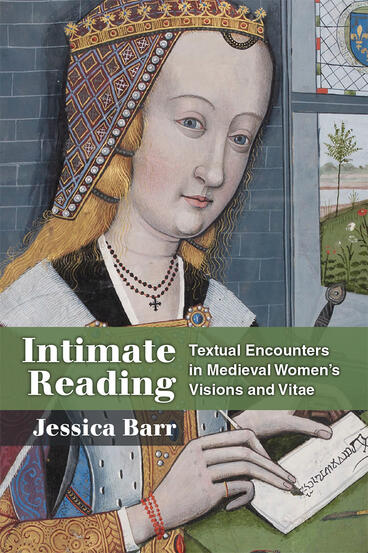Intimate Reading
Textual Encounters in Medieval Women’s Visions and Vitae
Explores how medieval women mystics sought to create an experience of the divine through the medium of the text
Description
Intimate Reading: Textual Encounters in Medieval Women’s Visions and Vitae explores the ways that women mystics sought to make their books into vehicles for the reader’s spiritual transformation. Jessica Barr argues that the cognitive work of reading these texts was meant to stimulate intensely personal responses, and that the very materiality of the book can produce an intimate encounter with God. She thus explores the differences between mystics’ biographies and their self-presentation, analyzing as well the complex rhetorical moves that medieval women writers employ to render their accounts more effective.
This new volume is structured around five case studies. Chapters consider the biographies of 13th-century holy women from Liège, the writings of Margery Kempe, Gertrude of Helfta, Mechthild of Magdeburg, Marguerite Porete, and Julian of Norwich. At the heart of Intimate Reading is the question of how reading works—what it means to enter imaginatively and intellectually into the words of another. The volume showcases the complexity of medieval understandings of the work of reading, deepening our perception of the written word’s capacity to signify something that lies even beyond rational comprehension.
Jessica Barr is Associate Professor of Comparative Literature at the University of Massachusetts Amherst.
Reviews
“Extremely compelling, and a useful way to look anew at some of the texts in the medieval devotional canon. Intimate Reading makes a significant contribution to the study of women’s reading in the Middle Ages, hagiography studies, and the study of medieval devotional literature.”
—Jennifer N. Brown, Marymount Manhattan College
“Tying together a set of important aspects of medieval spiritual literature, Intimate Reading makes an elegant contribution to medieval literary studies and feminist/queer studies.”
—Sylvain Piron, École des Hautes Études en Sciences Sociales
"Analyzing several vitae and visions of late medieval holy women, Barr argues that the texts were crafted to allow for intimate reading, through which readers achieve a personal mystical union with the divine." - CHOICE
- CHOICE

